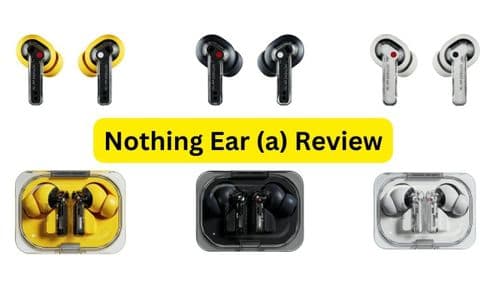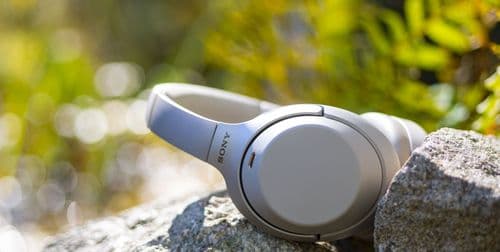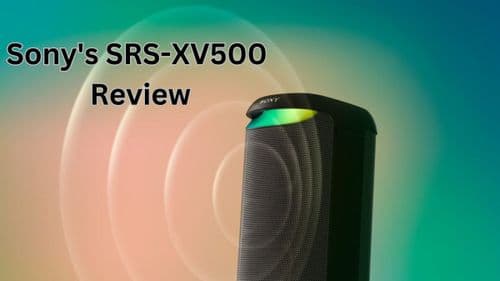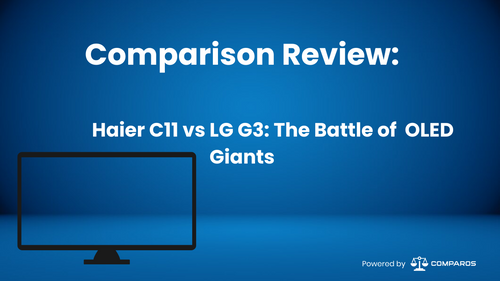- Featured
- New Mobiles
- Find New mobiles
- Latest Mobiles
- Upcoming Mobiles
- Popular Mobiles
- Gaming Mobile
- Compare Mobile
- Budget
- Under 5,000
- Under 10,000
- Under 20,000
- Under 25,000
- Under 30,000
- Under 35,000
- Under 40,000
- Under 50,000
- Over 50,000
- Camera Phone
- Under 5,000
- Under 10,000
- Under 20,000
- Under 25,000
- Under 30,000
- Under 35,000
- Under 40,000
- Under 50,000
Ad
Ad
AC Buying Guide for India 2024: All You Need to Know Before You Buy
Key Highlights:
• To help you limit down your possibilities, decide on a budget before you begin your search for an air conditioner.
• Recognise the many sorts of air conditioners that are available and select the one that best meets your needs (e.g. split, window, portable).
• To ensure maximum effectiveness and efficiency, figure out how much cooling capacity your space needs based on its size.
Make the Right Choice: Your Essential AC Buying Guide for India 2024

For humid and hot areas, air conditioners are a need, but choosing one may be difficult because there are so many different brands and models to choose from. It's best to wait until summer, when costs usually go up, because comparing features might be challenging.
The process is made easier by the AC buying guide, which establishes a budget, helps choose the best type, computes cooling capacity, takes usage frequency into account, and ranks models with greater power efficiency ratings for long-term savings.
Also Read: Beat the Heat: Window AC Buying Guide
Which Kind Of Air Conditioner Is Best For Your Space?

Selecting the right air conditioner is crucial, as there are three main types: Split AC, Window AC, and Portable AC, each with its own advantages and disadvantages.
Split AC:
The inside unit of a split air conditioner (AC) houses the evaporator and blower coils, while the outdoor unit is linked to the indoor unit by pipes that deliver refrigerant.
Split air conditioning systems provide more airflow and quicker cooling; however, they can only be installed inside and outdoors and are costly to remove. In comparison to other AC kinds, they also require more maintenance.
| Pros | Cons |
|---|---|
| Faster Cooling | Costly |
| Low Noise | More expensive to maintain |
| Can be installed on any wall | |
| Visually Appealing |
Window AC:
Window air conditioners, often referred to as monoblock ACs, are easier to install and take up less room, which makes them practical for rental homes or those who move frequently. They might not, however, have the same visual attractiveness as split air conditioners.
Window ACs offer advantages but have drawbacks like limiting natural light and ventilation, being noisier than split ACs, and may not be suitable for large rooms.
| Pros | Cons |
|---|---|
| Affordable | Noisy |
| Easy to install and uninstall | Basic Design |
| Easy to maintain | Not Ideal for Larger rooms |
| Easy relocation | |
| Ideal for smaller rooms |
Portable AC:
With a hose connecting one end to the unit and the other to a window for venting, portable air conditioners function similarly to window air conditioners and are lightweight and easily moved.
Although portable air conditioners are a cost-effective way to chill many rooms without having to buy separate units, they are noisy, pricey, and work best in smaller spaces.
| Pros | Cons |
|---|---|
| Easy to move | Noisy |
| Suitable to cool multiple rooms | Costly |
| Easy to install |
Choosing the Right AC Size
Effective cooling requires matching the capacity of an air conditioner to the size of the room; for a more precise measurement, the British Thermal Unit (BTU) rating is advised.
The appropriate capacity for an air conditioner depends on factors including square footage, ceiling height, insulation, and sun exposure for best results. The BTU rating quantifies the energy efficiency and cooling speed of the air conditioner.
1 KW/Hr = 3,412 BTU
12,000 BTU = 1 Ton
A room's number of windows, heat-producing equipment, exposure to sunshine, exterior wall and ceiling areas, and person count are some of the variables that affect an air conditioner's cooling performance. The cooling capacity of an air conditioner is mostly dependent on its tonnage and BTU ratings, which offer a broad estimate depending on the dimensions of the room and external conditions. You can use the following chart to determine the appropriate tonnage for your space.
| Room Size | BTU | Tonnage |
|---|---|---|
| 100-120 sq. ft. | 6,000 BTU | 0.5 Ton |
| 120-150 sq. ft. | 9,000 BTU | 0.75 Ton |
| 150-180 sq. ft. | 12,000 BTU | 1.00 Ton |
| 180-250 sq. ft. | 18,000 BTU | 1.50 Ton |
| 300-350 sq. ft. | 24.000 BTU | 2.00 Ton |
| 350-500 sq. ft. | 36,000 BTU | 3.00 Ton |
Also Read: How to increase the longevity of your window air conditioner?
Which Is Better, Inverter or Non-Inverter AC?
There are only two different types of AC, inverter and non-inverter. Generally, the inverters are power-saving but more expensive too. Most people believe that an inverter AC is meant to run on a power inverter (power backup) which is absolutely wrong. This is what you will mostly hear from salespersons at some retail shops.
In a non-inverter AC, the compressor works at full power until the temperature inside the room reaches your desired level then it stops. This start-stop process not only puts sudden load on the power supply but also consumes more electricity. On the other hand, the inverter AC’s compressor runs all time and adjusts how much electricity it should consume according to requirement continuously. That’s why they are called so because they can invert their workability depending upon need or demand which makes them better than others when it comes to saving energy However this functionality costs more money as well.
| Pros | Cons |
|---|---|
| Energy efficient | Cheaper than inverter ACs |
| Low noise | |
| Cools faster | |
| Longer life |
What is a Dual Inverter AC?
Dual-inverter ACs are advanced versions of BLDC motors with twin rotators, creating a 180-degree phase difference. This allows the AC to operate at a wider frequency range, making it more versatile and efficient in cooling.
They give better cooling performance and consume lower energy likened to normal inverter ACs, framing them comfortably and cost-effective. Innovation continues to ameliorate everyday appliances, making them a testament to the power of advanced motor technology.
Does Your AC Need a Voltage Stabiliser?
New ACs often come with built-in voltage stabilizers, protecting them from high and low voltages, ensuring stable power supply and prolonging lifespan. However, these stabilizers have operational limits, which vary depending on the model and brand.
To ensure optimal performance, check the manufacturer's voltage stabilizer ratings. In areas with frequent voltage fluctuations, consider purchasing a more powerful stabilizer for additional protection. Proactive precautions are crucial to safeguard appliances and maintain comfort.
How Crucial Are the Warranty and Service Quality of an AC?
The warranty period and service quality are crucial for expensive appliances like air conditioners (ACs). Most ACs come with a 1-year brand warranty and a longer compressor warranty, with some brands offering as low as three-year warranties and premium brands as high as ten-year warranties.
Regular maintenance is essential for AC efficiency, so an annual maintenance contract (AMC) plan from a trusted service provider is recommended. Onsitego's Comprehensive AMC plan offers up to two years of repair and maintenance support, including two preventive visits, unlimited repairs, free gas charging, and spare parts costs.
The quality of servicing is just as vital as the duration of an air conditioner's warranty. When it comes to customer experience, customer happiness, and service quality, certain brands are superior to others.
Examine reviews on websites, forums, social media, YouTube comments, Quora, online stores, and other sources to determine a brand's level of customer service and satisfaction. Ask friends and acquaintances about their impressions of the AC brand as well.
Other Features to Take Into Account When Purchasing an AC
Auto Start:
The Auto Start feature in an AC is a convenient feature that automatically restarts and restores settings after a power outage, enhancing comfort and maintaining desired temperature settings, providing a seamless experience during unexpected power interruptions.
Dehumidification:
Dehumidification features in air conditioners( ACs) assist preserve optimal moisture situations, especially in areas with high moisture situations. These features reduce redundant humidity, creating a more comfortable inner atmosphere and reducing earth or mildew growth. ACs naturally reduce moisture during cooling, but devoted modes can help maintain optimal moisture situations more efficiently.
Four-Way Swing For Better Airflow Across The Room:
The four-way swing feature in an air conditioner improves airflow distribution across the room, enhancing the perception of cooling by ensuring more evenly circulated air. This feature allows for horizontal and vertical adjustment, directing cool air precisely where needed. It's particularly beneficial for areas requiring more focused cooling, like seating or workstations.
Sleep timer:
The sleep timer feature in an air conditioner is an energy-saving feature that allows users to set a specific time for the AC to shut off automatically, reducing power consumption and potentially lowering electricity bills, especially at night when manual shutting off is not possible.
Smart Features:
Premium air conditioners with smart features like Wi-Fi or Bluetooth connectivity allow for easy control via smartphones or voice commands. These features can manage energy consumption and ensure comfort. It's crucial to choose an AC compatible with popular voice assistants like Alexa, Google Assistant, or Siri, and check for a user-friendly smartphone app.
Turbo Mode:
Turbo Mode, also known as "Quick Cool," is a feature in air conditioners that speeds up room cooling by running the AC at maximum power, but it consumes more energy than normal operation.
AC Tricks You Should Avoid
Mosquito Repellent Feature:
The mosquito repellent feature in ACs is marketed as a value-added feature, but its effectiveness is often debated. It uses ultrasonic waves or specific chemicals, and while some users find it helpful, studies suggest it's not significantly effective compared to dedicated repellents or nets, making it a risky purchase decision.
Triple Inverter AC:
Dual inverter ACs are known for their energy efficiency and quieter operation due to their 180-degree phase-shift compressor technology. They offer precise cooling and reduce energy consumption. However, triple inverter ACs can introduce more vibrations and noise, potentially leading to less stable operation and higher maintenance requirements. Therefore, it's crucial to consider the specific compressor technology and overall design of the AC to determine its performance and efficiency.
Anti-Bacteria or COVID-19 Virus Filtration Claims:
AC refiners may not doff dangerous bacteria or viruses, but they can entrap dust, allergens, and particulate matter. Consumers should concentrate on energy effectiveness, cooling capacity, and trustability when choosing anAC.However, conclude for high- quality pollutants and consider using separate air cleansers with HEPA pollutants for enhanced sanctification, especially during the COVID- 19 epidemic, If inner air quality is a concern.
Conclusion
When picking up an air conditioner, account factors like room size, energy effectiveness, cooling capacity, Wi- Fi connectivity, and budget. Look for estimable brands with good after- deals service and bond ages. Focus on proven benefits and practicality, rather than features like mosquito repellent or contagion filtration. Make informed opinions for the right AC.
Follow Us:
Ad
Recent News

iQOO Neo 9s Pro to Launch in China on May 20th with MediaTek Dimensity 9300+ Chipset
16-May-2024 06:53 AM

Realme GT 6T & Buds Air 6 Launch on May 22nd
15-May-2024 08:45 AM

OnePlus Open 2 Launch Delayed to 2025; Tipped to Feature Snapdragon 8 Gen 4
15-May-2024 07:36 AM

Redmi K70 Ultra Appears at 3C Certification, Confirms 120W Fast Charging
15-May-2024 06:30 AM

Google Unveils Game-Changing AI: Veo Creates Lifelike Videos, Imagen 3 Masters Photorealism
15-May-2024 06:12 AM
Reviews & Guides
View All

Nothing Ear (a) Review: Best Under Rs 8,000

Sony WH-1000XM5 Headphones Review: The Ultimate Noise-Canceling Experience

Sony's SRS-XV500 Review: Party-Ready Sound

Haier C11 vs LG G3: The Battle of OLED Giants

Top 7 Refrigerators in India (2024)

Dyson Airwrap: A Deep Dive - Hype or Must-Have Styling Tool?

5 Best Hair Straighteners for Salon-Worthy Hair at Home

Best Trimmer For Men (May 2024)
Ad
Latest Mobiles In India
Ad
Ad











